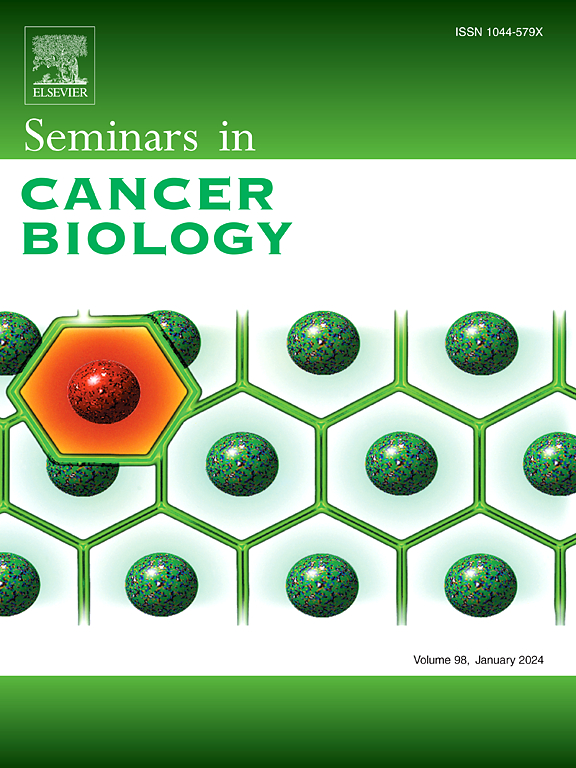Study of immunosenescence in the occurrence and immunotherapy of gastrointestinal malignancies
IF 12.1
1区 医学
Q1 ONCOLOGY
引用次数: 0
Abstract
In human beings heterogenous, pervasive and lethal malignancies of different parts of the gastrointestinal (GI) tract viz., tumours of the oesophagus, stomach, small intestine, colon, and rectum, represent gastrointestinal malignancies. Primary treatment modality for gastric cancer includes chemotherapy, surgical interventions, radiotherapy, monoclonal antibodies and inhibitors of angiogenesis. However, there is a need to improve upon the existing treatment modality due to associated adverse events and the development of resistance towards treatment. Additionally, age has been found to contribute to increasing the incidence of tumours due to immunosenescence-associated immunosuppression. Immunosenescence is the natural process of ageing, wherein immune cells as well as organs begin to deteriorate resulting in a dysfunctional or malfunctioning immune system. Accretion of senescent cells in immunosenescence results in the creation of a persistent inflammatory environment or inflammaging, marked with elevated expression of pro-inflammatory and immunosuppressive cytokines and chemokines. Perturbation in the T-cell pools and persistent stimulation by the antigens facilitate premature senility of the immune cells, and senile immune cells exacerbate inflammaging conditions and the inefficiency of the immune system to identify the tumour antigen. Collectively, these conditions contribute positively towards tumour generation, growth and eventually proliferation. Thus, activating the immune cells to distinguish the tumour cells from normal cells and invade them seems to be a logical strategy for the treatment of cancer. Consequently, various approaches to immunotherapy, viz., programmed death ligand-1 (PD-1) inhibitors, Cytotoxic T-lymphocyte-associated protein 4 (CTLA-4) inhibitors etc are being extensively evaluated for their efficiency in gastric cancer. In fact, PD-1 inhibitors have been sanctioned as late late-line therapy modality for gastric cancer. The present review will focus on deciphering the link between the immune system and gastric cancer, and the alterations in the immune system that incur during the development of gastrointestinal malignancies. Also, the mechanism of evasion by tumour cells and immune checkpoints involved along with different approaches of immunotherapy being evaluated in different clinical trials will be discussed.
求助全文
约1分钟内获得全文
求助全文
来源期刊

Seminars in cancer biology
医学-肿瘤学
CiteScore
26.80
自引率
4.10%
发文量
347
审稿时长
15.1 weeks
期刊介绍:
Seminars in Cancer Biology (YSCBI) is a specialized review journal that focuses on the field of molecular oncology. Its primary objective is to keep scientists up-to-date with the latest developments in this field.
The journal adopts a thematic approach, dedicating each issue to an important topic of interest to cancer biologists. These topics cover a range of research areas, including the underlying genetic and molecular causes of cellular transformation and cancer, as well as the molecular basis of potential therapies.
To ensure the highest quality and expertise, every issue is supervised by a guest editor or editors who are internationally recognized experts in the respective field. Each issue features approximately eight to twelve authoritative invited reviews that cover various aspects of the chosen subject area.
The ultimate goal of each issue of YSCBI is to offer a cohesive, easily comprehensible, and engaging overview of the selected topic. The journal strives to provide scientists with a coordinated and lively examination of the latest developments in the field of molecular oncology.
 求助内容:
求助内容: 应助结果提醒方式:
应助结果提醒方式:


